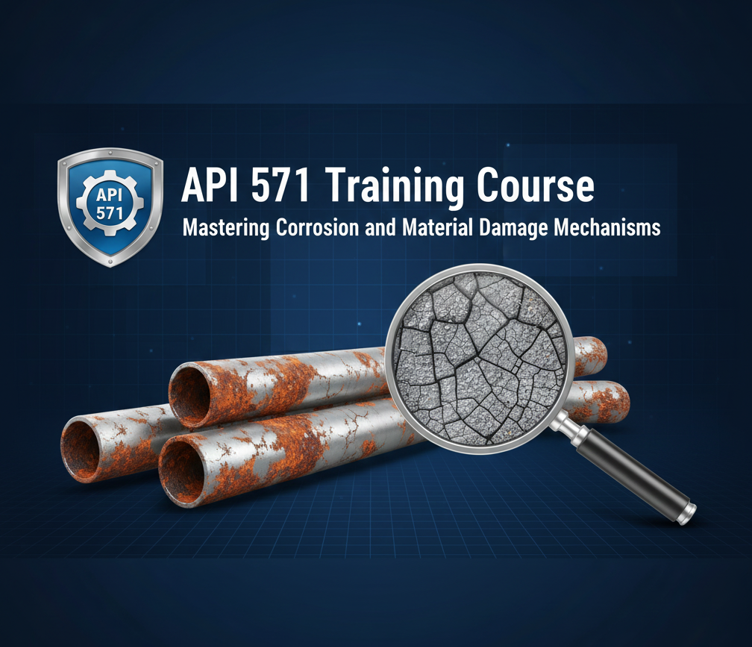Procuring Materials
The piping construction engineer employs her general outlining and writing ability to assist procurement engineers in the purchasing of pipes needed for a certain construction project. If for instance, you are supervising pipe installation in the construction of a water heating plant, you can make market visits with the mandate of sourcing for pipes that meets the required quality specifications and on the market prices of the different pipes. The general quality of construction improves by the use of high standards and quality construction material, an aspect that the contractor can sell and barter for future construction projects.
Responsibilities of Piping Construction Engineers
- Designing and laying out piping systems: This involves identifying the kind and diameter of pipes and fittings and other materials to be used in the project In addition identifying the right path of the pipes to allow suitable flow and functionality.
- Preparing construction documents: This includes developing drawings and specifications of the piping system construction and includes material take-off list and bills of materials.
- Managing the construction of the piping systems: This encompasses supervising the installation processes of the pipes, fittings and other parts and actually overseeing the construction personnel as well as ensuring that the construction activities are done to the set plans and specifications on the construction site.
- Inspecting and testing the piping systems: This also involves observation of the process as it is undertaker and final process of test and inspection to ensure that the piping system as complied with the set code and standard before commissioning.
- Managing safety and environmental compliance: These are among the measures of making certain that all piping systems constructed are safe and conform to all safety and environmental requirement and also making certain that proper measures are in place to eradicate possibilities of accidents or any other mishaps.
- Coordinating with other teams: It also involves cooperation with other engineers, project managers and constructors to ensure the correct interconnectivity of the piping systems as well as scrutinizing for timely and efficient total project completion within the budget estimates.
All together, the engineers in piping construction are liable for delivering the designed and constructed and tested piping system to fulfill the requirements of the project as well as the code and standard. Actually they also bear the responsibility of overseeing the safety of the construction, the process and the final structure.
Monitoring Installation
In piping construction, piping Construction engineers oversee the putting up of pipes with an aim of evaluating whether or not it is in congruity with the project design. They monitor the accomplishment of work to have prospects of difficulties, control threats and ensure protection of piping staff. For instance, a piping engineer that supervises the installation of a water system in an urban building is supposed to oversee the pipe fitters, steam fitters, and plumbers
use helmets and gloves when there is danger that is likely to be encountered at the workplace. It also assists in ensuring that we retain compliance with the regulations of the Occupational and Safety and Health Administration on the use of the construction materials that contain Asbestos.
Complete Oil and Gas Industry Practical Training Course
Complete Oil and Gas Industry Practical Training Course is a self-learning, practical program powered by industry expertise. Log in to explore, practice real scenarios, and grow industry-ready skills.
- pipenet
- pipesim
- HTRI
- olga
Overseeing Maintenance
If a contractor has an agreement with a project owner to conduct post-construction maintenance services, the piping construction engineer has a responsibility to periodically inspect the facility and identify faulty areas. She can handle minor repairs by herself or bring in more workers for extensive maintenance services. This professional also maintains direct communication with facility owners or managers for direct reporting of leaks, pipe bursts and other technical issues.
Scheduling Activities
To ensure completion of construction projects within the set timelines, a piping construction engineer liaises with
construction managers and project designers to create an elaborate plan of events. For construction of a milk-processing plant, for example, the engineer determines what needs to be done at each construction stage, the length of time each task may take and any special conditions necessary for effective piping activities. He then might divide the piping staff into groups, allocate duties and train them on executing the job.
Piping site engineer responsibilities
Responsibilities piping site engineer may have
Plan, monitor and supervise piping system installation and maintenance activities at construction sites.
Ensure that the design and layout of piping systems comply with project specifications and local codes and regulations.
Abilities to perform calculations and using piping and instrumentation diagrams (P&IDs) and Isometrics for fabrication and installation.
Consult with construction teams and contractors in order to determining efficient construction sequences that will cause the least amount of disruption to the plant.
Formulate timetables and consult the procurement and the logistics departments, to so that delivery of all necessities and apparatus used in the project are obtainable on time.
Capable of overseeing safety programs, conducting site and health risk analysis and guaranteeing compliance with safety standards.
Sample activities include making inspections, tests and documentation to ensure that it conforms to the requirement of the project.
Identify and work with different professionals including the clients, engineers, designers, and project managers in order to achieve the objectives of the project.
Make sure that all transactions concerning the projects and their durations, costs, quality and other factors are documented properly.
Nevertheless, it is desirable to mention that the range of activities of a piping site engineer can be different, depending on the project in question and the needs of the company and the client. Also, present day industrial requirements regarding legal and tested specifications for design and installation of the piping system should not be violated.
A Piping Site Engineer performs an important responsibility with regard to the installation, construction, and maintenance of the piping systems at the site. Some of their tasks include guaranteeing that the piping systems have been laid properly, are safe for use and are efficient. Here are some of the typical responsibilities of a Piping Site Engineer:Here are some of the typical responsibilities of a Piping Site Engineer:
Site Inspection: Carry out often checks on the construction site to ensure that the piping installation conforms to the established plan and design.
Quality Control: Supervise materials and their quality, welding process and methods of installation to ascertain that they meet the set standards.
Safety Compliance: Implement safety measures to reduce the possibility of occurrence of accidents to allow the construction team to work safely. Address safety concerns promptly.
Coordination: Consult with other engineers like civil, mechanical and/or electrical to work with the piping engineers or designers in another project.
Material Management: Oversee the storage, storage and identification of materials and equipments used in pipes in construction doings and guarantee that they are correct.
Documentation: Document and update the work in progress by considering as built drawings, material test reports, and inspection reports of the piping system.
Problem-Solving: Perform diagnostics and analyze the potential problems that may occur in the process of construction, e.g., interference with other constructions or equipment.
Testing and Commissioning: Supervise the conduct of pipe works tests and pressure testing to ensure that it is completed and the piping systems are functioning correctly. Make sure that no systems are leaking and all systems which should function are indeed doing so.
Communication: Report progress to the project manager, design engineers, contractors and others involved in the project with the progress of the piping installation.
Cost Control: Monitor project costs related to piping, track expenses, and work within the allocated budget.
Change Management: Oversee alterations or any modifications made on the piping design, and correctly record and approve on this.
Training: Educate construction teams or laborers in an efficient manner so that they perform the piping installation in the best possible manner.
Environmental Compliance: Make sure proper piping distributes do not violate the environmental standards and norms especially in cases where the company is operating under very high standards of environmental compliance.
Final Inspection: Perform the final check up to ensure that all the piping systems are properly installed, correctly tested and commissioned as the project is brought to a close.
Client Interaction: Always be on good terms with the client and ensure that any concern or any request that the client may have concerning the piping systems is well attended to.
In conclusion, a Piping Site Engineer is a critical contributor to the achievement of piping systems and projects’ objectives and goals in construction endeavors whilst focusing on safety measures, quality, and design requirements. They ensure proper project management as they can focus on details, they problem-solve, and they can deal with other people.
Complete Oil and Gas Industry Practical Training Course
Complete Oil and Gas Industry Practical Training Course is a self-learning, practical program powered by industry expertise. Log in to explore, practice real scenarios, and grow industry-ready skills.
- pipenet
- pipesim
- HTRI
- olga
piping material engineer responsibilities
The responsibilities of a piping material engineer vary depending on the specific role and industry, but may include:The responsibilities of a piping material engineer vary depending on the specific role and industry, but may include:
- Developing and specifying piping materials: Piping material engineers collaborate with other engineers and architect during specification and recommending the material to be used in the piping system. Some of the aspects with which one has to consider for designing the fluid handling equipment includes the type and nature of the fluid to be transported, the conditions at operation and environments.
- Conducting material testing: Piping material engineers perform material tests so that the material selected for the fabrication of the piping systems is ideal for the job at hand. Some of the tests they conduct may include the tensile testing, impact testing, and corrosion testing.
- Developing and implementing welding procedures: Welding procedures in piping system are designed and put in place by piping material engineers. This includes the aspect or checking that the kind of welding used for joining is particularly appropriate for the material and the welding procedure conforms to safety measures set.
- Overseeing the installation of piping systems: Piping material engineers also supervise the piping systems in order to see that the materials have to be put appropriately and the welding conditions are met.
- Resolving piping material problems: Piping material engineers work on issues that develop concerning piping materials in the course of the piping system design, construction, and functional usage. Such tasks may include solving certain issues, making certain suggestions, and collaborating with other engineers or technicians.
Piping material engineers usually possess a Baccalaureate degree in engineering mainly in mechanical engineering or civil engineering. Others may also need a master or a doctoral degree especially in engineering. Technical skills relevant to the piping material engineers include material science knowledge, welding skill, and fluid mechanics.
The employment opportunities in piping material engineering are fairly good. According to the Bureau of labor statistics, the employment of piping engineers is expected to grow by 6% from 2020 to 2030, which is expected to be as the average employment rate of other occupations. This growth is attributed to the fact that there will be requirement to rehabilitate and reinstate existing piping systems as well as provide new piping systems for new facilities.
The pipin engineers in the filed earned a median annual wage of $91,130 as of May 2020. Thus, the first decile crossed $137,180, and the tenth decile did not exceed $55,930.
If you are interested in a career as a piping material engineer, there are a few things you can do to prepare:If you are interested in a career as a piping material engineer, there are a few things you can do to prepare:
- Get a degree in engineering: Education Like most other piping engineering careers, a minimum education requirement is a four-year bachelor’s degree in engineering.
- Get experience: Get working experience by either working for an internship or in such fields such as construction, manufacturing e.t.c.
Get certified: There are several certification programs existing for the piping engineers. Certification can help prove to a potential employer that you know what you are doing. - Network with other engineers: One can come across new jobs from one’s peers which could lead to even better paying jobs.
Therefore, piping material engineering can be considered as a good career option for those, who love engineering, have the analytical mind and like working with their hands. Thus, the pipe material engineering profession offers a raise and demanding job, good job security if this is what you have been searching for.
Piping engineer job description
A Piping Engineer, therefore, is a professional that is charged with the design, assessment, and supervision of piping systems in industries such as oil and gas and petrochemical, power among others. Their responsibilities comprise of guaranteeing that piping systems are appropriately selected, constructed and utilized for appropriate safety and code compliance and several other requirements of the project. Here is a comprehensive job description for a Piping Engineer:Here is a comprehensive job description for a Piping Engineer:
Job Title: Piping Engineer
Job Summary: Piping engineer is an executive who is accountable for the design and the analysis of piping systems in industrial plants. They work as a means to shipping fluids, gases, and even material through pipelines and are very essential. Due to the Project relevance, Piping Engineers are required to coordinate with other engineers and professionals in order to provide desired project performances and follow industrial norms and regulations.
Key Responsibilities:
Piping Design: Create drafting and designs such as piping layout, isometric drawings and piping schematic using computer-aided design (CAD). Ensure that codes and standards are met in designs of the projects and/or products.
Material Selection: Choose the correct piping materials depending on the project needs; deciding which type shall be used with the flow sensitivity, temperature, and pressure involved and whether or not it shall be corrosion resistant.
Stress Analysis: There are two common methods used in stress analysis of piping systems; Analyse the stresses imparted on the mechanical systems in the pipe and evaluate the stress resistance capacity. Eliminate stress concentrations, possible sources of vibrations, and the phenomenon of thermal expansion.
Pipe Routing: It also involves the determination on how to layout the piping systems in facilities such that they do not cause obstruction to other structures and equipment.
Specification Development: Develop specific engineering requirements on the components of piping such as valves, fittings and supports.
Cost Estimation: It entails estimating probable costs for planning and implementation of piping design and material costs. Prime example is to keep track of the costs ant work within the confines of the set budget for the project.
Quality Assurance: It is important to confirm that the installed piping systems conform to quality parameters and as laid down by the set specifications. Supervise the Quality Assurance, and Quality Control activities.
Safety Compliance: It calls for compliance to safety measures that should help avoid or minimize on accidents as well as operational safety of piping systems. Address safety concerns promptly.
Environmental Considerations: Compliance with regulations especially those dealing with the environment particularly companies that pollute the environment.
Project Coordination: Consult with project managers, civil engineers, mechanical engineers and other parties to ensure the proper implementation of piping systems within the given project frameworks.
Documentation: Maintain accurate records, including as-built drawings, material certifications, and inspection reports, to track project progress and changes.
Vendor Liaison: Communicate with vendors and suppliers to source piping components and materials, ensuring that they meet project specifications and standards.
Troubleshooting: Identify and resolve issues or challenges that arise during the design, construction, or operation of piping systems.
Training: Provide guidance and training to project teams, construction workers, and operators to ensure the proper installation and maintenance of piping systems.
Continuous Learning: Stay updated with industry trends, codes, and technologies to enhance expertise and contribute to ongoing improvement in piping design and engineering practices.
Qualifications:
- Bachelor's degree in Mechanical Engineering or a related field (Master's degree may be preferred for senior roles).
- Professional engineering license or certification (e.g., P.E., P.Eng) may be required.
- Proficiency in CAD software and pipe stress analysis tools.
- Knowledge of industry codes and standards (e.g., ASME B31.3, API, ASTM).
- Strong analytical and problem-solving skills.
- Effective communication and teamwork abilities.
- Attention to detail and a commitment to safety and quality.
A Piping Engineer's role is critical in ensuring the safe and efficient operation of piping systems in industrial facilities. They contribute to the success of projects by designing systems that meet technical, safety, and regulatory requirements while optimizing cost and performance.









